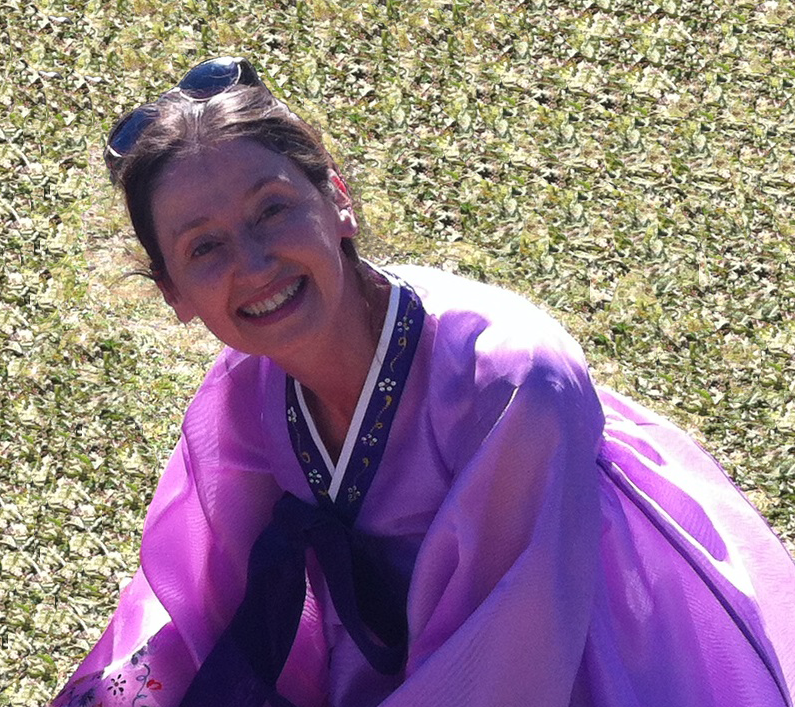 BolognaBookPlus catches up with some of its broad community, ranging from exhibitors to speakers and partners, for a quick interview in the time it takes to have an Espresso. Read their views on books, publishing, food, and more! Today we catch up with Selina Kucks, CEO and Founder of ELK Publishing, Queensland Australia.
BolognaBookPlus catches up with some of its broad community, ranging from exhibitors to speakers and partners, for a quick interview in the time it takes to have an Espresso. Read their views on books, publishing, food, and more! Today we catch up with Selina Kucks, CEO and Founder of ELK Publishing, Queensland Australia.
What is the best thing about going to international book fairs?
I think the best part about going to international book fairs - has to be meeting the myriad of incredibly talented illustrators, who often get left behind in the process of bookmaking. They are such a quintessential part of a children’s book; they give it a particular quality, character and personality that breathes life into a story that may otherwise remain in the shadows of black and white. It is the correct balance of illustration and text that makes a book stand out from the pack; and what gives it the ‘wow’ factor that entices a child to pick up a book, in the first place.
Having an opportunity to select an unknown, unseen illustrator and to pair them up with a great writer is like watching magic happen before your eyes – it’s a match made in heaven.
Is your reading preference for physical books, audio, ebooks, and why?
For me, the physical book wins hands down. This might be the day and age of the internet; digital book production is considerably less expensive, but only physical books can give the reader an opportunity to engage with more than one or two of their senses. A child will retain more than 60% - more information if two or more senses are activated. Physical books create that platform - not only can children enjoy and partake in the story, but they also have the added bonus of retaining, growing, and understanding far more of what they read. Plus, it’s the only way you get your book signed, by the author!
If you could have one superpower, what would it be?
A superpower, hey? Now, that’s a question and a half. If I could adopt and cultivate a superpower - it would be to write, incredibly addictive books that were so engrossing for the human population - it would have no time, want, or need for war. Instead, human beings would be busy sharing the next exciting chapter or happy ending. Now, wouldn’t that be nice?
What is your favourite film based on a book?
The 2019, period film of ‘Little Women’ - adapted from Louisa May Alcott’s novel of ‘Little Women’ is one of my all-time favourites. Greta Gerwig’s script for this adaptation is absolutely superb and not only are Jo, Beth, Meg, and Amy perfectly cast - the dreary, austere atmosphere of hardship, loss and pain are so well delivered to the audience. I very much resonate with Jo’s character; I feel and understand her struggle to achieve as a writer and woman, but also her concerns for not wanting to disappoint family, in the process of achieving her lifelong dream.
What do you consider to be publishing’s greatest threat at the minute, and why?
The first thing that comes to mind is definitely the threat of AI technology and how it could be used to replace both the writer and illustrator, within the publishing and film industries. It’s scope of damage, could be far reaching if we do not regulate how this technology is used. A human being may well require more time to develop its unique, creative ideas, but just because an automated machine can produce and process at a quicker rate - does not make it right. The processing of ideas is what makes us human; it is what gives our creations worth, substance and appreciation by others in our community.
AI has slowly crept in, to almost every facet of our daily lives. So much of what we call convenience, is just laziness on behalf of being human and because of this laziness, we have begun to suffer physically, mentally, and emotionally. In all of history combined, there has never been such mental, addictive, anarchistic, detrimental behaviour seen in our societies. Disease is rampant, student behavioural issues are out of control, physical activity is at an all-time low and the neuronal ability for humans to process information without a computer, appears almost non-existent.
AI could do away with all sorts of creative and educational positions – editors, reporters, teachers, artists, writers, scriptwriters, and illustrators are just the tip of the iceberg. And, if all our mental stimulation and creativity melts away into a sea of nothingness, we become nothing more than an empty shell – void of light, direction, and existence.
What one thing would make your job significantly easier?
For any small or independent publisher, funding and PR is always an issue. Competing with the ‘big five’ publishing houses who have a monopoly on the market and who have adequate access to funding for business growth - sustainability and permanence is pretty much assured. But… for those in small business, one is always balancing cost production, with turning enough profit, to keep the doors open. I think, for small publishing houses, it is a labour of love that keeps them going.
